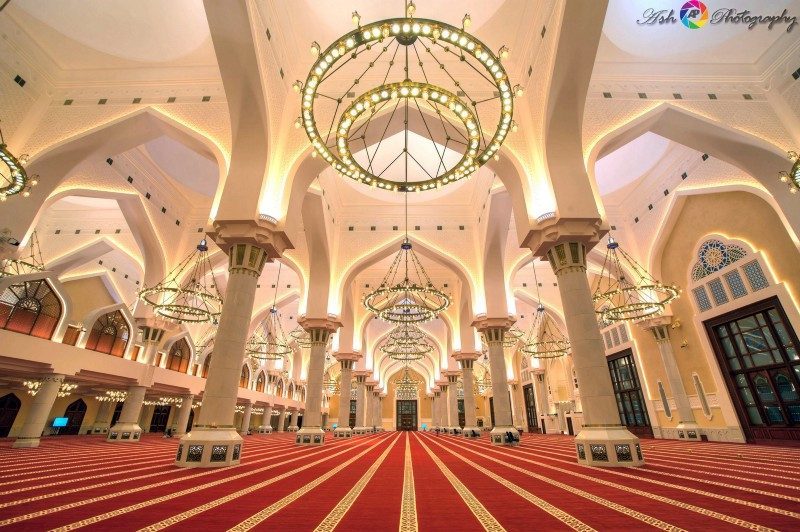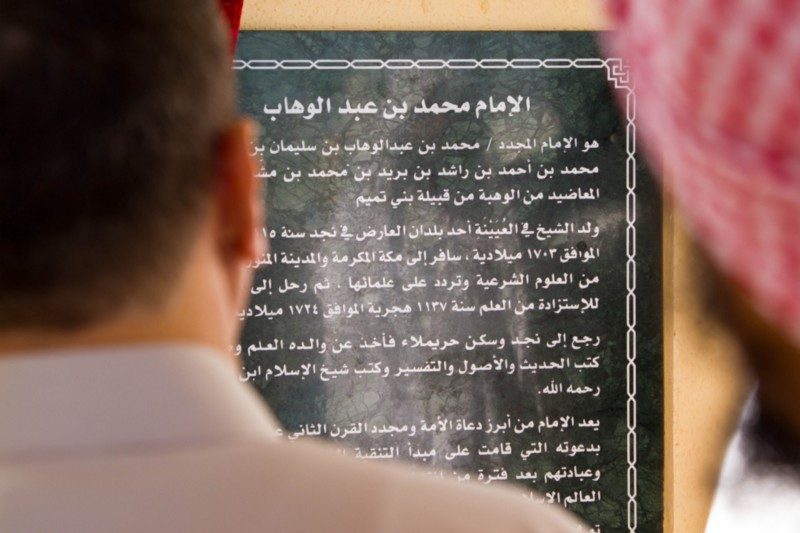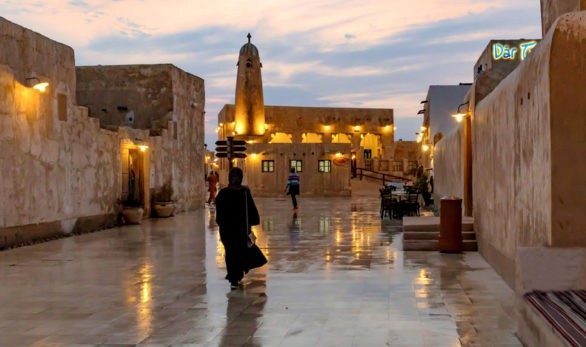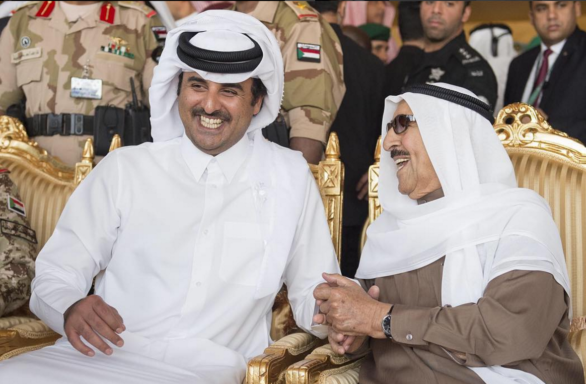
A prominent Saudi Arabian family has ordered Qatar to change the name of its largest mosque, saying it was coined under false pretenses.
The mosque opened in late 2011, when the Father Emir still ruled Qatar. Shortly before this, he renamed the building from the Grand Mosque to the Sheikh Muhammad Ibn Abdul Wahhab Mosque.
At the time, QNA said the move was “in reflection of the State of Qatar’s intention to revive the nation’s symbols and its cultural values.”

However, Saudi’s Al Sheikh family said this week that the name should be changed because Sheikh Hamad erroneously called himself a descendent of Imam Abdul Wahhab.
What’s in a name
The demand was made in a statement signed by Saudi’s Minister of Islamic Affairs, the state mufti and some 200 others.
But it is unclear why they believe this to be true.
When the mosque was named after the Imam, QNA hailed his “strict abidance by the Holy Quran and the Prophet’s sayings and actions,” but made no mention of blood relations.

A plaque outside mosque also makes no claim of a familial relationship between the Imam and the Al Thani family.
Instead, it describes the man as an influential Sunni scholar who was born in the Arabian Peninsula in the 18th century.
However, according to Reuters, Qatar’s ruling family does trace its history to Najd, the part of Saudi Arabia where Imam Abdul Wahab was from.

The scholar is widely credited with introducing the conservative practice of Islam in Saudi Arabia, Qatar and throughout the Gulf, in what is now called Wahhabism.
Though many Qataris ascribe to this tradition, the Al Sheikh family also asserted that the state mosque does not follow the teachings of its namesake.
According to Arab News, they also allege “its imams and preachers are not committed to the moderate Salafist teachings.”
Media furor
The demand to change the mosque’s name comes amid a larger Gulf media war that erupted last week, after Qatar’s state news agency published false reports attributed to the Emir and Foreign Minister.
The remarks expressed support for Israel and Iran, and criticized key Qatar allies such as Saudi Arabia and the US.

Authorities in Doha have denied the veracity of all the statements, saying QNA was hacked. But many in the UAE, Saudi Arabia and Bahrain took the remarks at face value.
Officially, Gulf governments have been silent about the matter.
However, media is tightly controlled in these countries. And outlets in all three nations have been running articles, news packages and editorials criticizing Qatar.
Access to Qatar-based and funded Al Jazeera was also blocked inside some Gulf countries after the hack.
Call for reconciliation
Things have not been this tense within the GCC since 2014, when Saudi, the UAE and Bahrain recalled their ambassadors from Doha for political reasons.
But yesterday, a senior UAE official urged reconciliation, saying the Gulf is currently facing a “new sharp crisis that carries within it a great danger.”
موقعنا وإستقرارنا في وحدة الصف وصدق التوجه، ولا نعيش في فقاعة خادعة قد تضر الشقيق والجار دون أن تطالنا، أمننا متصل ومترابط وكذلك مستقبلنا.
— د. أنور قرقاش (@AnwarGargash) May 28, 2017
In a series of tweets, Minister of State for Foreign Affairs Anwar Gargash pushed for unity. Without mentioning Qatar specifically, he added:
“Fending off sedition lies in changing behavior, building trust and regaining credibility.”
Thoughts?






